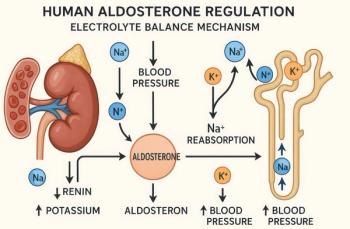
AHA Suggests Heart Screening Instead of Routine ECGs for Young Athletes
DALLAS -- Pre-participation cardiovascular evaluation of young competitive athletes to rule out Marfan syndrome, murmur, aortic coarctation, and hypertension could reduce the risk of sudden death, contend new guidelines.
DALLAS, March 13 -- Pre-participation cardiovascular evaluation of young competitive athletes to rule out Marfan syndrome, murmur, aortic coarctation, and hypertension could reduce the risk of sudden death, contend new American Heart Association guidelines.
But the AHA, outlining a 12-step cardiovascular screening protocol that includes family and personal medical history as well as a physical examination, said there was no need for routing ECG screening of high school and college athletes.
The recommendations came in a scientific statement from the AHA's Council on Nutrition, Physical Activity, and Metabolism, which was published online by Circulation, Journal of the American Heart Association. The statement was also endorsed by the American College of Cardiology Foundation.
The AHA said sudden deaths of athletes were "usually due to a variety of unsuspected cardiovascular diseases and have been reported with increasing frequency in both the United States and Europe."
The European Society of Cardiology and the International Olympic Committee addressed the problem by recommending that competitive athletes be evaluated with a 12-lead electrocardiogram prior to competition, but the AHA disagreed.
Barry J. Maron, M.D., of the Minneapolis Heart Institute, who chaired the writing committee, said the "AHA panel does not believe it to be either prudent or practical to recommend routine use of tests such as 12-lead ECG or echocardiography in the context of mass, universal screening."
At this time, Dr. Maron said, the U.S. has neither the money nor the trained professionals that would be needed to carry out such large-scale ECG or echocardiography screening.
Instead the AHA recommended a few noninvasive tests designed to "enhance the diagnostic power of the standard history and physical examination."
Those four noninvasive tests are:
- Ausculatation performed in both the supine and standing position (or with Valsalva maneuver) to identify murmurs of dynamic left ventricular outflow tract obstruction.
- Femoral pulses to exclude aortic coarctation.
- Brachial artery blood pressure, preferably taken in both arms in a sitting position.
- Assessment for physical stigmata of Marfan syndrome.
These tests should be evaluated along with information obtained from a medical history that includes a five-part personal history and a three-part family history.
Personal history should include:
- History of exertional chest pain or discomfort.
- Unexplained syncope or near syncope episodes.
- Excessive exertional and unexplained dyspnea or fatigue associated with exercise.
- Prior recognition of a hear murmur.
- Elevated systolic blood pressure.
Family history should include:
- Premature death (sudden and unexpected, or otherwise) before age 50 due to heart disease at least one relative.
- Disability from heart disease in a close relative younger than 50.
- Specific knowledge of these conditions in family members: hypertrophic or dilated cardiomyopathy, long-QT syndrome or other ion channelopathies, Marfan syndrome, or clinically important arrhythmias.
Dr. Maron said that a "positive response or finding in any one or more of the 12 items may be judged sufficient to trigger a referral for cardiovascular evaluation."
Newsletter
Enhance your clinical practice with the Patient Care newsletter, offering the latest evidence-based guidelines, diagnostic insights, and treatment strategies for primary care physicians.
































































































































